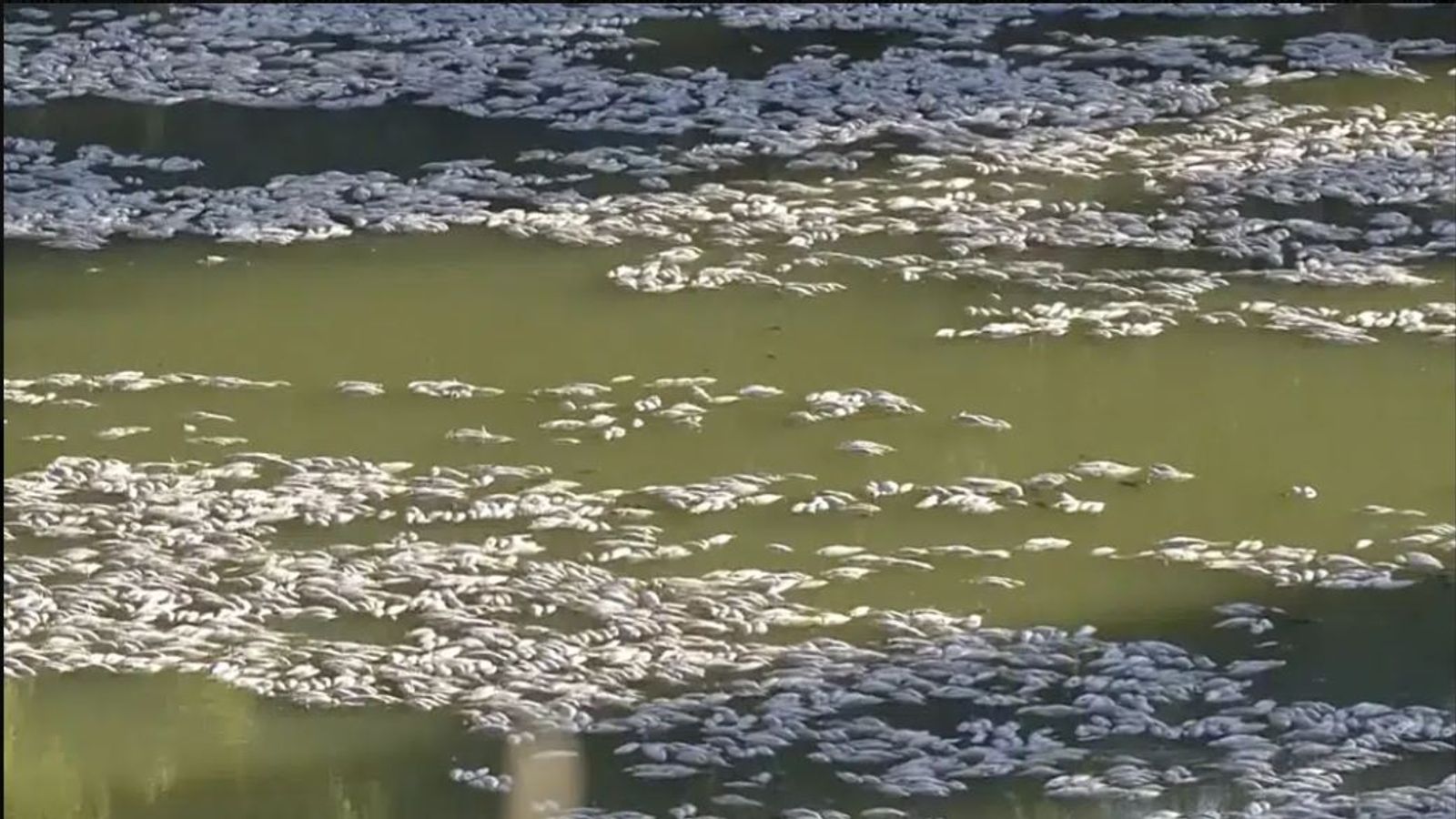Australian police say removing millions of dead fish from Darling River near Menindee will be ‘logistical nightmare’

Removing millions of rotting fish from a river in the Australian outback will be a “logistical nightmare”, according to police.
The fish started dying in the Darling River near the New South Wales town of Menindee, where temperatures have been reaching 40C, on Friday.
Experts say the die-off likely occurred because fish, mainly bony bream, cod and perch, need more oxygen in hot weather, but oxygen levels in the water dropped after recent floods receded.
Police Assistant Commissioner Brett Greentree said keeping the town’s water supply pure was the main priority and removing the dead fish was the next most pressing issue.
Read more:
What is causing the fish deaths?
Trained contractors have been contacted about removing the fish with nets, but dates for the work have not been set yet.
Residents have expressed their anger at the delay in starting the clean-up operation and have been concerned about their water supply becoming contaminated.
“I’m certainly not making promises that all the millions of fish will be removed by contractors because that is really a logistical nightmare,” Mr Greentree said.
“I understand and acknowledge the smell and sights on the river – nobody wants to see that,” he added.
Advertisement
Authorities were supplying drinking water to residents who rely on river water, which was continually being monitored for quality, Mr Greentree added.
Read more news from around the world:
Former Australian soldier charged for alleged war crime
Police file terror charges against former Pakistan PM
What is the new Aukus submarine pact?
Enormous fish kills also occurred on the river at Menindee during severe drought conditions in late 2018 and early 2019.
Joy Becker, a professor of aquatic animal health at the University of Sydney, said it would take a significant amount of time for the river’s ecosystem to recover.
“It does mean that those populations [of fish] may not rebound as quickly or at the same magnitude,” she said.
“Pest species can actually just take over that spot, which makes it even harder for native fish to recover.”